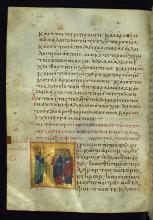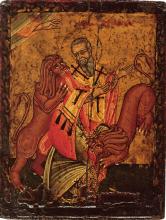The study of the New Testament involves a thorough knowledge of the twenty-seven books, which are its contents, and of the world out of which those books come, whether Jewish or Graeco-Roman, as well as a clear-sighted view of the history of its interpretation, knowledge of which raises significant questions about the reason for its study and the variant approaches to that study. In it most comprehensive form, then, New Testament studies will involve not only an acute historical sense but a broader hermeneutical perspective. Through the various courses it offers in this area, the MPhil at Cambridge engages with this panoramic view of the discipline, as well as requiring detailed study of chosen texts.
Since module can occasionally change from year to year, you may wish to speak to the coordinator of the New Testament and Early Christianity MPhil Pathway, Dr James Carleton Paget, for details of provision in the future. The modules being offered this year are listed on New Testament and Early Christianity MPhil.
Modules
| Methods and Interpretations | Issues in the Study of Early Christianity |
 |
 |
Images used on this page:
Left: Title: Acts and Epistles, Title page of the Epistle to the Galatians, Walters Manuscript W.533, fol. 216v. Creator: Walters Art Museum. Source: Walters Art Museum Ms. W.533 Licence: Public Domain. Right: Title: Saint Ignatius of Antioch. Creator: Vladimir Lobachev. Source: https://tinyurl.com/5etjx4a3. Licence: Public domain.
